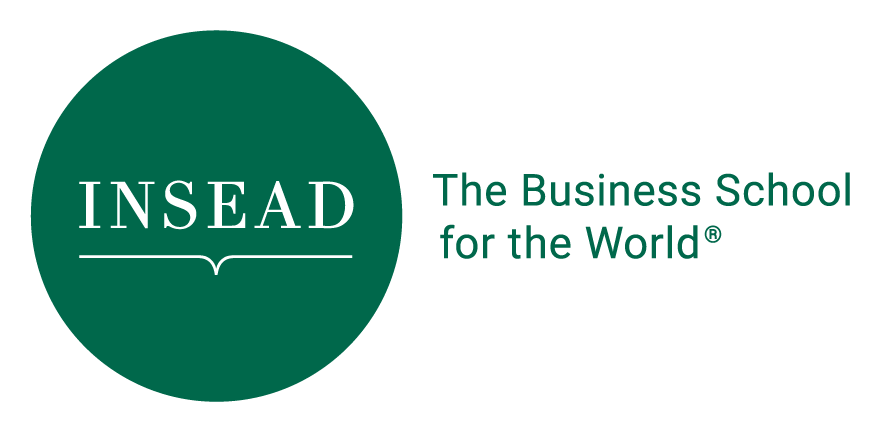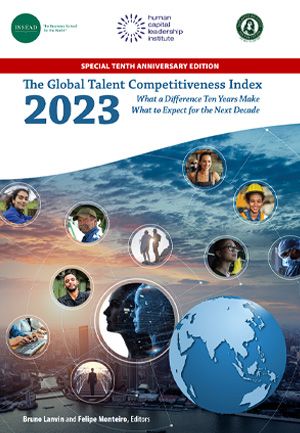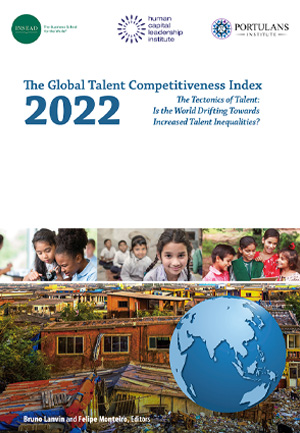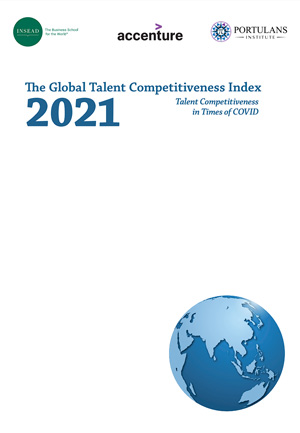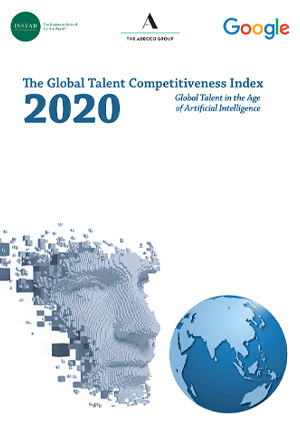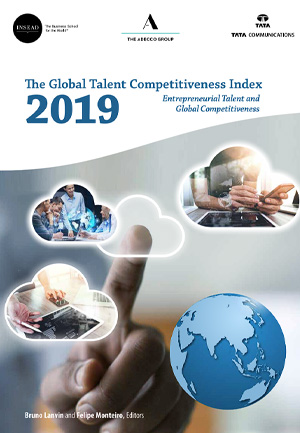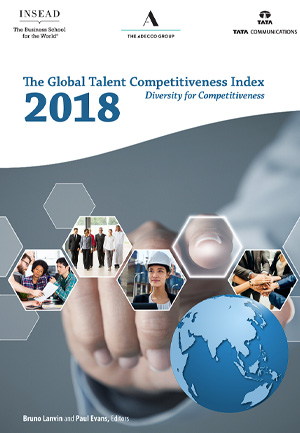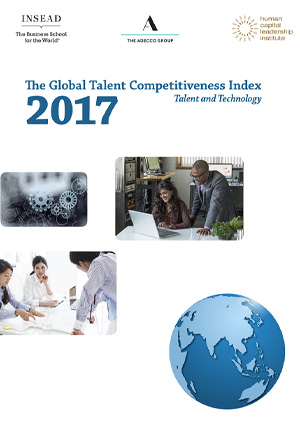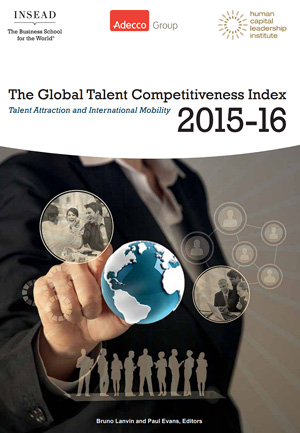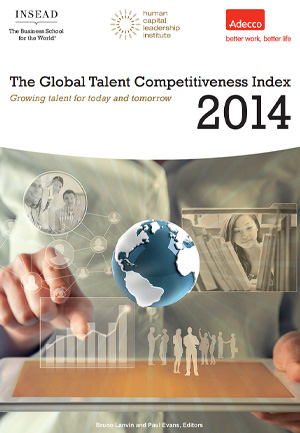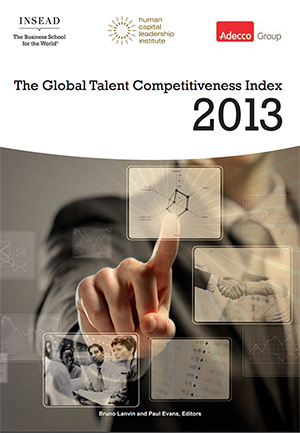Global Talent Competitiveness Index 2025
Assessing National Capacities to Develop, Attract, and Retain Talent

Explore the Ranking
At its core, the GTCI consists of a six-pillar Input-Output framework that conceptualises a nation's talent competitiveness as the ability of a country to attract, grow, and retain human capital—within an enabling context—and to translate these efforts into measurable talent outcomes.
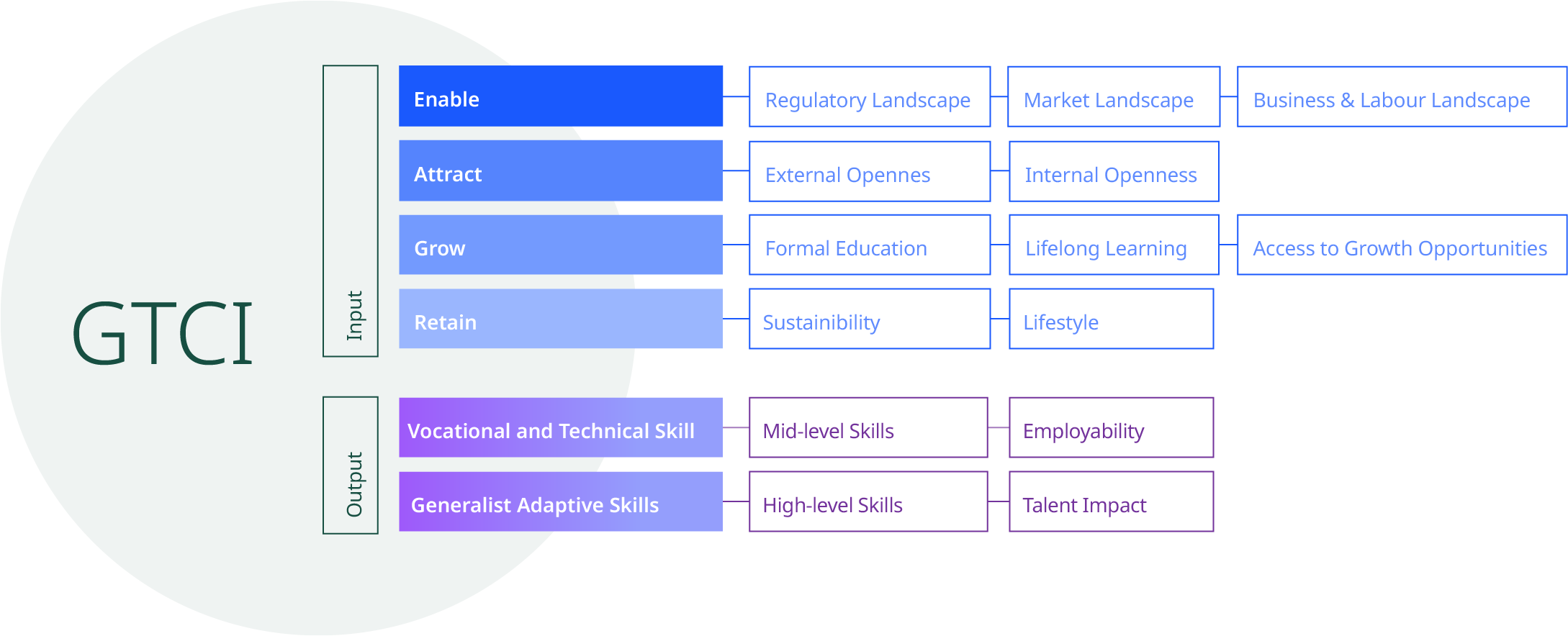
- Sub-Saharan Africa31 Countries

- Northern America2 Countries

- Northern Africa and Western Asia19 Countries

- Latin America and the Caribbean18 Countries

- Europe39 Countries

- Eastern, Southeastern Asia and Oceania16 Countries

- Central and Southern Asia10 Countries

- Albania
- Austria
- Belarus
- Belgium
- Bosnia and Herzegovina
- Bulgaria
- Croatia
- Czech Republic
- Denmark
- Estonia
- Finland
- France
- Germany
- Greece
- Hungary
- Iceland
- Ireland
- Italy
- Latvia
- Lithuania
- Luxembourg
- Malta
- Moldova, Rep.
- Montenegro
- Netherlands
- North Macedonia
- Norway
- Poland
- Portugal
- Romania
- Russian Federation
- Serbia
- Slovakia
- Slovenia
- Spain
- Sweden
- Switzerland
- Ukraine
- United Kingdom
Countries
The top positions in the GTCI ranking continue to be dominated by developed, high-income countries, with a strong positive correlation between GDP per capita and GTCI scores.
The Detailed Results section provides further insights into country performance across sub-pillars and indicators. European economies maintain their dominance in the GTCI rankings, accounting for 18 of the top 25 positions. Notably, Singapore ranks first for the first time since the inception the Index, displacing Switzerland, which moves to second place, followed by Denmark in third. The United States drops to ninth place—its lowest position since 2013.
Among the non-European economies, Australia, Canada, New Zealand, Israel, and the United Arab Emirates also feature in the top 25. South Korea exits this group, while Portugal enters for the first time. An assessment of the top 15 countries is presented in the Detailed Results section, along with comparative analyses of performance by income group and region.
Past Reports
About INSEAD
The Business School for the World As one of the world’s leading and largest graduate business schools, INSEAD brings together people, cultures and ideas to develop responsible leaders who transform business and society. Our research, teaching and partnerships reflect this global perspective and cultural diversity. Our global perspective and unparalleled cultural diversity are reflected in our research, teaching, partnerships; as well as in our alumni network of over 71,000 members spanning 172 nationalities. With locations in Europe (France), Asia (Singapore), the Middle East (Abu Dhabi), and North America (San Francisco), INSEAD's business education and research spans four regions.
Our 160 renowned Faculty members from 38 countries inspire more than 1,500 degree participants annually in our Master in Management, MBA, Global Executive MBA, Specialised Master's degrees (Executive Master in Finance and Executive Master in Change) and PhD programmes. In addition, more than 18,000 executives participate in INSEAD Executive Education programmes each year. INSEAD continues to conduct cutting-edge research and innovate across all our programmes. We provide business leaders with the knowledge and awareness to operate anywhere. Our core values drive academic excellence and serve the global community as The Business School for the World.
For more information, visit www.insead.edu.

